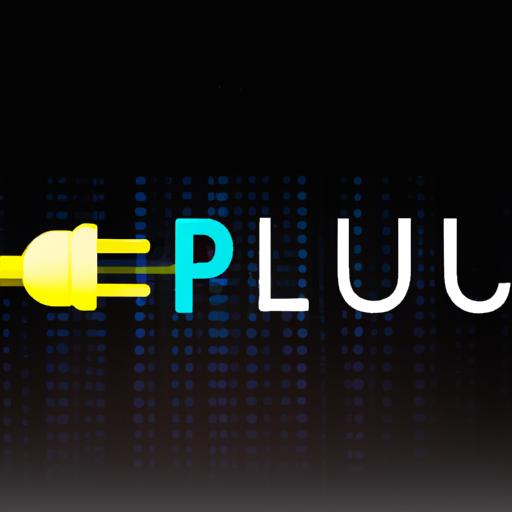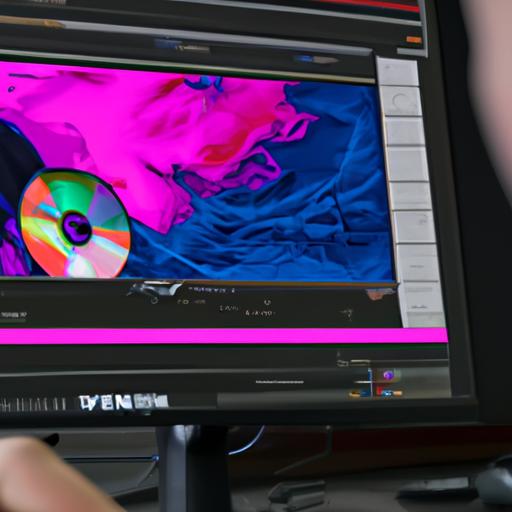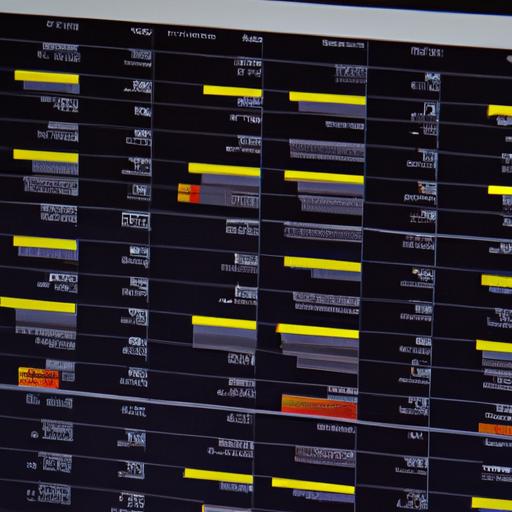Mastering Data Scientist Interview Questions: A Comprehensive Guide
Introduction
In today’s data-driven world, the role of a data scientist has gained immense significance. As companies strive to harness the power of data to make informed decisions, the need for skilled data scientists has skyrocketed. However, finding the right candidate for this critical role is no easy feat. That’s where conducting effective data scientist interviews comes into play.
Defining the Data Scientist
Before we dive into the art of interviewing, let’s clarify who exactly a data scientist is. A data scientist is a skilled professional who possesses a unique blend of technical expertise, statistical knowledge, and business acumen. They are well-versed in extracting meaningful insights from complex datasets, utilizing advanced analytical techniques, and building predictive models to drive data-informed strategies.
The Importance of Effective Data Scientist Interviews
Conducting thorough and well-structured data scientist interviews is paramount to ensure you hire the best fit for your company’s needs. A successful interview not only assesses the candidate’s technical proficiency but also evaluates their problem-solving abilities, communication skills, and adaptability. By asking the right questions, you can gain valuable insights into a candidate’s potential to contribute to your organization’s success.
As a hiring manager or recruiter, you understand the significance of this role and the impact it can have on your company’s growth and profitability. Therefore, it is crucial to optimize your interview process to attract top talent in the competitive field of data science.
Now that we understand the importance of effective data scientist interviews, let’s explore how to prepare for these interviews in the next section. Stay tuned to uncover strategies that will give you an edge in selecting the best data scientist for your organization.
Preparing for the Data Scientist Interview
To conduct a successful data scientist interview, thorough preparation is key. This section will guide you through the crucial steps necessary to ensure you are well-prepared to assess candidates effectively.
Researching the Company and its Data Science Requirements
Before diving into the interview process, take the time to research your company and its specific data science needs. Gain a deep understanding of the industry you operate in, the challenges you face, and the goals you aim to achieve through data-driven insights. This knowledge will help you tailor your interview questions to assess a candidate’s ability to tackle these specific challenges.
Understanding the Role and Responsibilities of a Data Scientist
To identify the ideal data scientist for your organization, it is crucial to have a clear understanding of the role and responsibilities they will undertake. Familiarize yourself with the core functions expected from a data scientist, such as data collection, cleaning, analysis, and modeling. Understand the impact they will have on decision-making processes and how they will contribute to the overall growth of the company.
Identifying the Required Technical Skills and Qualifications
Data science is a multidisciplinary field that requires a diverse skill set. Identify the technical skills and qualifications that are essential for the role you are hiring for. This may include expertise in programming languages like Python or R, proficiency in statistical analysis and machine learning algorithms, and experience with data manipulation and visualization tools such as SQL and Tableau. By clearly defining the required skills, you can structure your interview questions to assess a candidate’s competence in these areas.
By thoroughly researching your company’s needs, understanding the role of a data scientist, and identifying the necessary technical skills, you will be well-equipped to conduct an effective interview. In the next section, we will explore the types of questions you can ask to evaluate a candidate’s technical knowledge and problem-solving abilities. Stay tuned for actionable insights that will help you find the perfect data scientist for your team.
Technical Data Scientist Interview Questions
As you prepare to interview data scientists, it’s essential to evaluate their technical skills and expertise. This section will guide you through the key areas to focus on when assessing a candidate’s technical abilities.
Assessing Programming Language Proficiency
A data scientist should be well-versed in programming languages commonly used in data analysis and machine learning. During the interview, you can gauge their knowledge and proficiency by asking questions related to languages like Python, R, or Java. Consider asking them to explain how they have utilized these languages in previous projects. Look for candidates who can articulate their understanding of the language and showcase their ability to write clean, efficient code.
Understanding of Statistical Analysis and Machine Learning Algorithms
To excel in the field of data science, a deep understanding of statistical analysis and machine learning algorithms is crucial. Ask candidates to demonstrate their knowledge in these areas by inquiring about topics such as hypothesis testing, regression analysis, or classification algorithms. Encourage them to explain their approach to solving real-world problems using statistical and machine learning techniques. Look for candidates who can demonstrate both theoretical knowledge and practical application.
Proficiency in Data Manipulation and Visualization Tools
Data manipulation and visualization are integral parts of a data scientist’s toolkit. Assess a candidate’s proficiency in tools like SQL, Tableau, or Excel by asking them to walk you through their experience with these tools. Inquire about their ability to extract, clean, and transform large datasets, as well as their familiarity with data visualization techniques. Look for candidates who can showcase their ability to derive meaningful insights from complex data and present them in a visually appealing manner.
By evaluating a candidate’s programming language proficiency, understanding of statistical analysis and machine learning algorithms, and proficiency in data manipulation and visualization tools, you can ensure that you are selecting a data scientist who possesses the technical skills necessary to excel in the role. In the next section, we will explore the behavioral interview questions that will help you assess a candidate’s soft skills.
Behavioral Data Scientist Interview Questions
When it comes to evaluating a data scientist’s suitability for a role, technical skills alone don’t paint the complete picture. Behavioral interview questions provide valuable insights into a candidate’s problem-solving abilities, critical thinking skills, teamwork, and communication prowess. Here are some key areas to focus on during the behavioral interview process:
Exploring Problem-Solving Abilities and Critical Thinking Skills
Data scientists encounter complex problems regularly, and their ability to approach these challenges with analytical thinking is crucial. Ask candidates to describe a specific data problem they faced in the past and how they tackled it. Look for their problem-solving strategies, logical reasoning, and the steps they took to arrive at a solution. This will give you an understanding of their analytical mindset and their approach to data-driven decision-making.
Assessing Teamwork and Communication Skills
Data science projects often involve collaboration with cross-functional teams, so it’s essential to assess a candidate’s ability to work effectively in a team environment. Ask candidates to share examples of their experiences working collaboratively and how they contributed to a team’s success. Look for effective communication skills, active listening, and the ability to articulate complex concepts in a clear and concise manner. Strong interpersonal skills and the ability to collaborate with stakeholders of varying technical backgrounds are valuable traits in a data scientist.
Evaluating Experience in Handling Real-World Data Science Projects
While theoretical knowledge is important, practical experience is equally valuable in the field of data science. Inquire about the candidate’s experience in handling real-world data science projects. Ask them to provide examples of projects they completed, the challenges they faced, and the outcomes achieved. This will give you insights into their ability to apply their skills in a practical setting, their adaptability, and their ability to deliver tangible results.
By incorporating behavioral interview questions into your data scientist hiring process, you can gain a holistic understanding of a candidate’s capabilities beyond technical expertise. This comprehensive evaluation will help you identify the ideal candidate who not only possesses the required skills but also fits seamlessly into your team and organization.
Stay tuned for the next section, where we will discuss industry-specific data scientist interview questions to help you tailor your interviews to specific domains.
Industry-Specific Data Scientist Interview Questions
When it comes to hiring a data scientist, one size does not fit all. Different industries have unique data challenges and require specific skill sets. Tailoring your interview questions to the industry or domain you operate in can provide valuable insights into a candidate’s suitability for the role. Here are some key considerations and industry-specific data scientist interview questions to help you make the right choice:
Assessing Industry-Specific Understanding
To gauge a candidate’s understanding of industry-specific challenges, ask questions that delve into their knowledge of the domain. Explore their familiarity with the unique datasets, regulations, and trends that characterize the industry. For example, if you’re in the e-commerce sector, you might ask:
1. How would you approach analyzing customer purchasing behavior data to improve sales conversions in an e-commerce setting?
This question assesses their ability to apply data analysis techniques to optimize sales performance and drive revenue growth.
Evaluating Industry-Specific Data Analysis Techniques
In addition to understanding the challenges, it’s crucial to evaluate a candidate’s proficiency in industry-specific data analysis techniques. This will help you determine their ability to extract meaningful insights and make informed decisions within the given industry context. For instance, if you’re in the healthcare industry, you could ask:
2. How would you analyze a large healthcare dataset to identify patterns and potential risk factors for a specific disease?
This question assesses their familiarity with healthcare data analysis techniques, such as cohort studies, survival analysis, or predictive modeling for diagnosis.
Applying Data Science Concepts to Industry-Specific Problems
Lastly, assess a candidate’s ability to apply data science concepts to solve industry-specific problems. This helps evaluate their practical skills and their potential to contribute to your organization’s success. Consider asking a question like:
3. Suppose you’re working for a financial institution, and they want to develop a fraud detection system. How would you approach building a predictive model to identify fraudulent transactions?
This question assesses their understanding of fraud detection techniques, such as anomaly detection and supervised learning algorithms, and their ability to implement them effectively.
By tailoring your interview questions to specific industries, you can identify candidates who possess the necessary knowledge and skills to address industry-specific challenges. This approach ensures you find a data scientist who not only understands the broader field but can also make a significant impact in your specific industry.
Conclusion
In conclusion, mastering data scientist interview questions is essential for hiring the right talent to drive your organization’s data-driven success. By understanding the role of a data scientist and conducting effective interviews, you can identify candidates who possess the technical skills, problem-solving abilities, and industry-specific knowledge required to excel in this field.
Throughout the interview process, it is crucial to ask relevant and well-crafted questions that assess the candidate’s expertise in programming languages, statistical analysis, machine learning algorithms, and data manipulation tools. Additionally, evaluating their behavioral competencies, teamwork skills, and experience in real-world data science projects can provide valuable insights into their potential for success in your organization.
Remember, each industry may have its unique challenges and data analysis techniques. Tailoring interview questions to specific industry domains ensures that you assess a candidate’s ability to apply data science concepts to solve industry-specific problems.
Lastly, continuous learning and improvement in the interview process are essential. Stay updated on the latest advancements in the field of data science, incorporate feedback from previous interviews, and adapt your questioning techniques accordingly.
By following these guidelines and investing time in the interview process, you can confidently select the right data scientist who will contribute to your company’s growth, innovation, and competitive advantage.
Now, armed with this comprehensive guide, you are ready to embark on the journey of finding the perfect data scientist for your organization. Best of luck in your interviews!
Conclusion: So above is the Mastering Data Scientist Interview Questions: A Comprehensive Guide article. Hopefully with this article you can help you in life, always follow and read our good articles on the website: news.mail1s.com




